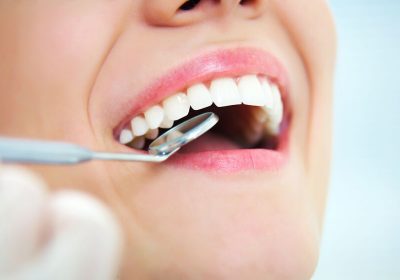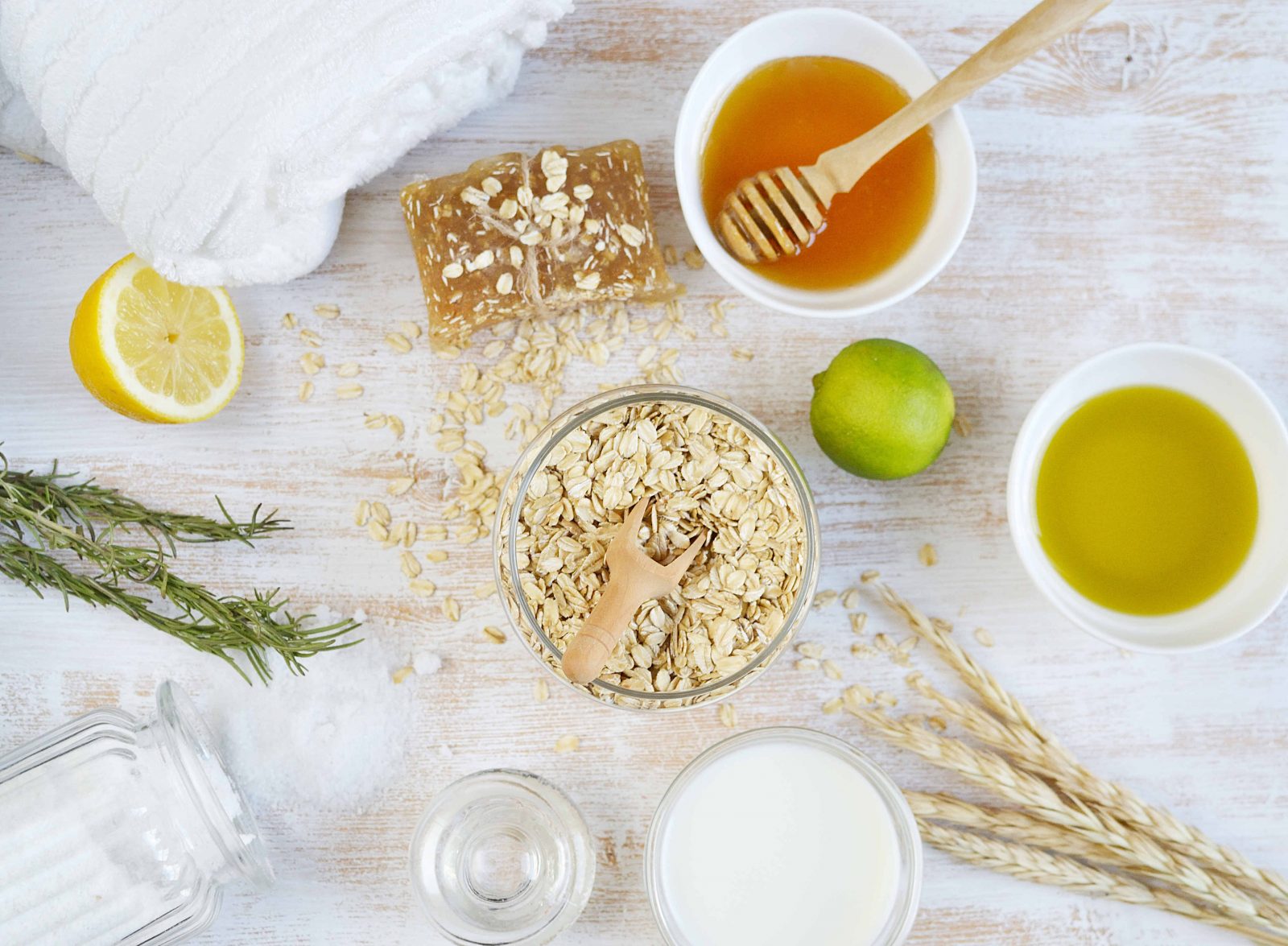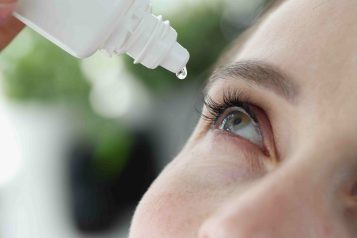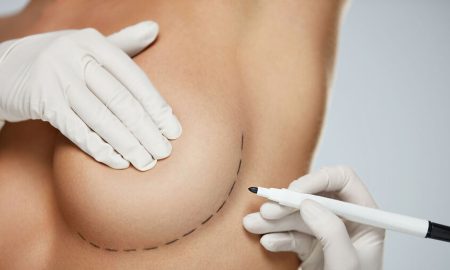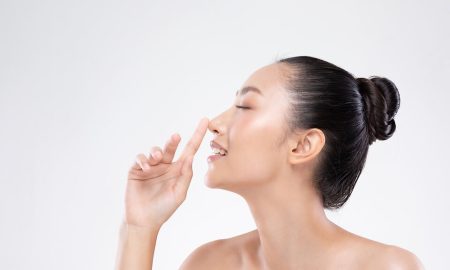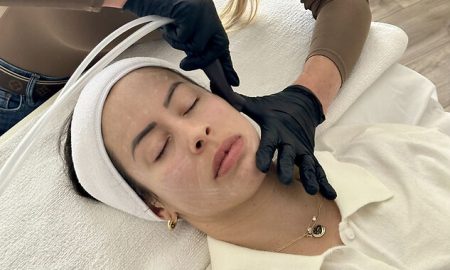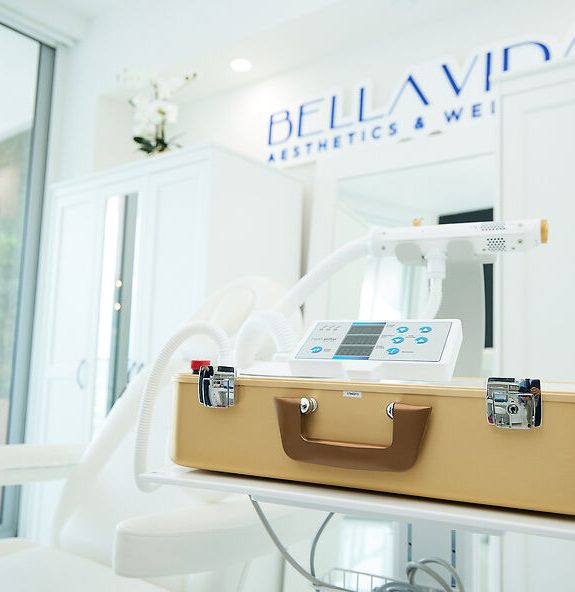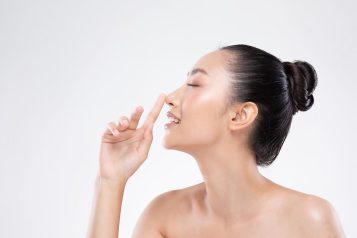Dr. Alina Sholar is a renowned plastic surgeon based in Austin, TX, the founder of Skin Science Soul by Dr. Sholar and her much-adored Dr2Dr skincare program exclusively for physicians. Dr. Sholar is recognized nationally as an aesthetic laser expert and is frequently featured in national media outlets. After completing a full five-year general surgery residency at the University of Louisville, she went on to a Plastic & Reconstructive Surgery at the University of Tennessee. Her plastic surgery training included not only aesthetic surgery, but also dermatology, non-invasive and laser aesthetic treatments, reconstruction related to craniofacial surgery, microsurgery, hand surgery, burn surgery, and breast surgery. Dr. Alina Sholar is not only known for her unparalleled medical background, she also builds a true connection with her patients, with an easy girl’s-girl relatability. Haute Beauty sat down with Haute Beauty expert Dr. Alina Sholar to discuss which face mask is right for your skin.

With so many different kinds of masks—clay and mud, cream, gel, exfoliating, sheet—and each one accomplishing something different using different ingredients, ultimately choosing which to use can be quite confusing. Here is a quick and easy 2-step method to give you focus on your face-fix!
Facial skincare masks work their magic by soaking the face with your chosen formula for a set period of time, usually 10-20 minutes, giving the ingredients more time to penetrate and take effect. They can be an effective way to deliver an intensive burst of nourishing and therapeutic skin care ingredients in a highly concentrated form.
Masks can be a fantastic tool to have in your beauty arsenal, but not all skin care masks are a good fit for every skin type. Depending on your skin type and goals, different masks work better for different skins. And, while they can be a quick fix for some issues like inflammation and dehydration, their benefits are only temporary, so you should use always them in conjunction with daily skin care products. In general, limit face mask application to just once a week and always discontinue if irritation develops.
Sounds great, but what’s the downside? Because of their length of application and concentration, a mask can be risky and lead to a surprising number of issues, including dryness, irritation, redness, and breakouts if the wrong type for your skin is used. With hundreds of face mask formulas out there, which one should you pick?
The physiology of your unique skin will determine which ingredients are best for you, so go to a skin specialist first to get to know your skin. It’s surprising how many people misdiagnose their own skin, so a dermatologist or plastic surgeon skin specialist will help you understand your individual skin best. Then you can hone in on the mask that will address your specific skin issues.
Step 1: Let’s first look at mask ingredients, as your skin type and issues will guide you toward the ingredients required to solve any skin problems.
Acne and Inflamed + Oily Skin
Face masks can help calm inflamed skin and prevent breakouts. They aren’t a long-term remedy for acne, so daily use of gentle, barrier-loving skincare products are still important. For adult acne, steer clear of teen products with benzoyl peroxide. Instead, look for salicylic acid, azelaic acid, and natural enzymes like papain from papayas and bromelain from pineapples to gently remove dead skin and pore-clogging substances while putting out the fire of inflammation.
Sensitive and Inflamed
If your skin is sensitive and inflamed, it is most definitely barrier-disordered. In this case, gentle, pH-appropriate (around pH 5) products containing no emulsifiers or detergents are preferred. Too high or too low pH destroys the natural fats in your skin’s protective lipid bilayer, and emulsifiers wash away those good fats, leaving skin with an inability to function properly. Thus, you get more sensitivities. Instead, seek out inflammation-quenching and soothing ingredients like Butcher’s broom, Rose hip seed oil, beta-Defensin, IGF-1, and D-panthenol in a rich lipid-based formulation of phosphatidylcholine and the proper ratio of cholesterols, ceramides, and fatty acids to repair your skin’s barrier.
Dark Spots and Hyperpigmentation
Brightening ingredients like tranexamic acid, vitamin C, niacinamide, kojic acid, and gigawhite compound with botanicals like licorice root extract work to lighten and brighten multiple layers of pigmentation. If the skin isn’t too sensitive, you can combine the brighteners with exfoliating ingredients such as alpha-hydroxy acids (AHAs), lactic acid, and natural fruit enzymes to help remove dead, discolored skin from the surface.
Dry, Dehydrated Skin
Dry, dehydrated skin needs serious hydration and it needs barrier repair to keep water from escaping, so you’ll want to use a face mask filled with water-retaining humectants like hyaluronic acid, urea, and glycerin combined with barrier-restoring CM-glucan and lipids including ceramides, fatty acids, and cholesterols.
Fine Lines and Signs of Aging
Although deeper wrinkles will likely require a trip to your plastic surgeon or dermatologist for laser resurfacing, radiofrequency microneedling, and fillers, certain face masks can help minimize the appearance of fine lines. Masks containing high doses of antioxidants like esterified Vitamin C, along with vitamin E, coQ10, isoflavones, EGCG, green tea extract, and resveratrol from grape seed extract work to protect the skin from the things that cause fine lines, such as environmental pollution and UV damage.
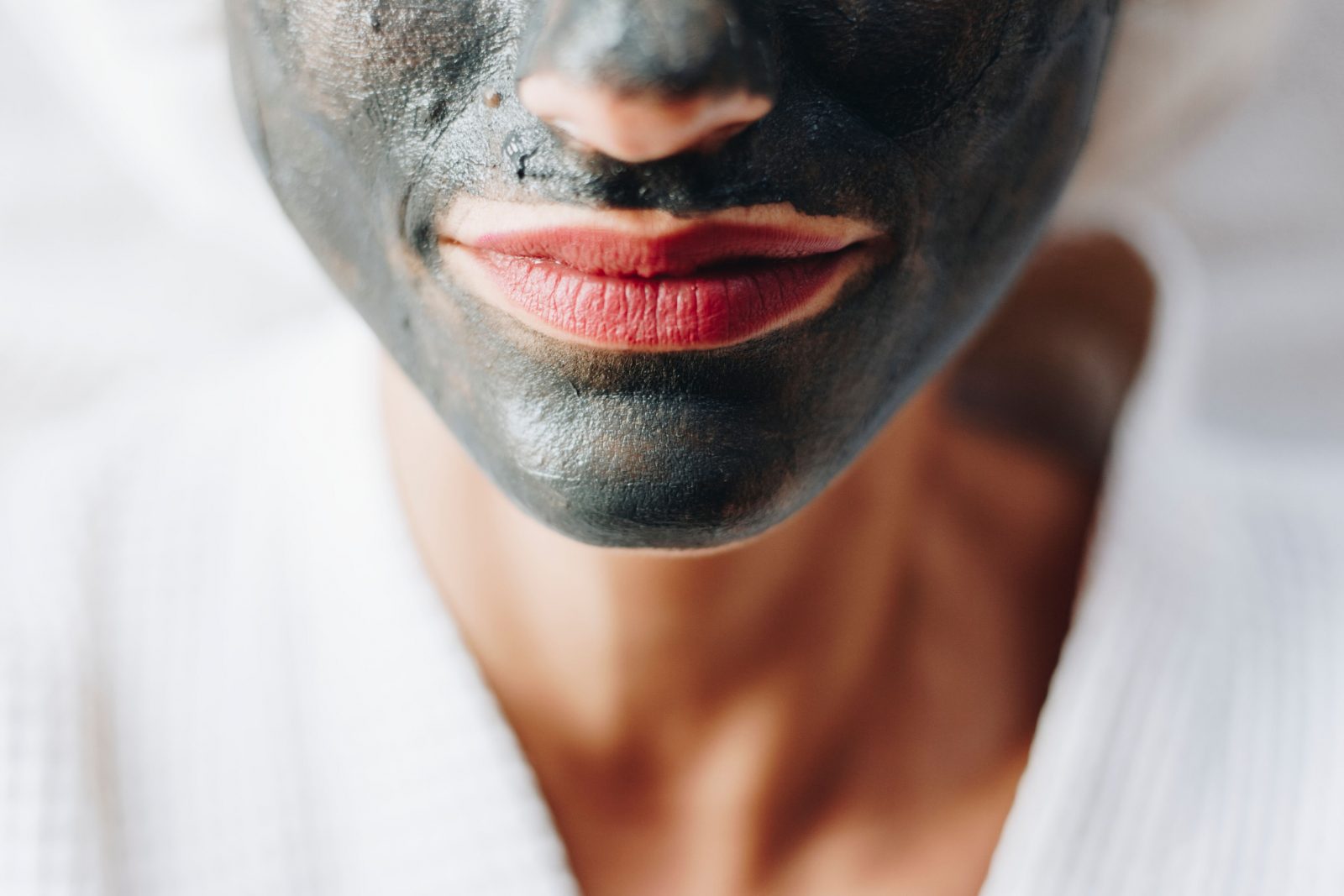
Step 2: Now that you know which ingredients to focus on for your skin issues, you’ll want to narrow down the type of carrier material of the face mask that’s best for you and your skin. Certain ingredients and face mask types go together like PB&J.
Mud, Clay, and Charcoal
Mud Masks
Ideal for many skin types, mud masks are designed to give a deep, but hydrating cleanse. They may be similar in appearance to the clay variety, but because they are water-based, they are more hydrating and are suitable for people with dryer, more dull skin. You’ll often find mud masks containing various gentle alpha-hydroxy acids and fruit extracts in the list. These are best for tolerant, but drier, congested skin. Sensitive and rosacea-prone skins should look elsewhere, though, as water-based and acidic products can cause flare-ups.
Clay
Clay is Mud’s cousin. The main difference between the two is that mud is a skin-healing agent, while clay is a cosmetic, drying agent. Clay masks are most useful for someone who has oily skin and is prone to breakouts of acne and blemishes. Clay masks, which are rich in minerals, are also great for revitalizing dull skin. The two main types of clay masks —kaolin and bentonite — absorb excess oil and are suitable for both oily and acne-prone skin. They can be a little drying, though so already dry, dehydrated skin types may want to be wary. Ultimately, knowing your skin type and the results you wish to achieve through a mask is of essence, but both mud and clay-based products can deliver great benefits to the skin.
Charcoal
Charcoal face masks contain activated charcoal, an ingredient that has unique detoxifying properties. However, there’s little evidence to support the use of charcoal face masks, so this is not a preferred treatment in my book. Unlike most other peel-off face masks, peel-off charcoal masks contain an adhesive that dries upon application and is then peeled away from the skin, along with dead skin cells. Further, charcoal peel-off masks claim to be able to physically remove blackheads, and this is false. The white debris removed by these masks is usually sebaceous filaments, not blackheads. Sebaceous filaments are a combination of dead skin cells, sebum and bacteria that naturally occur around hair follicles, and are not a sign of infection. Removing them does not have any beneficial effect. While these masks often succeed at removing debris, their method of doing so is quite aggressive. The removal process is painful for many users, and strips away healthy skin cells and small vellus hairs. This leaves the skin irritated and vulnerable to infection. So, although it can remove surface impurities, it is too risky and does not have enough benefit to invest in.
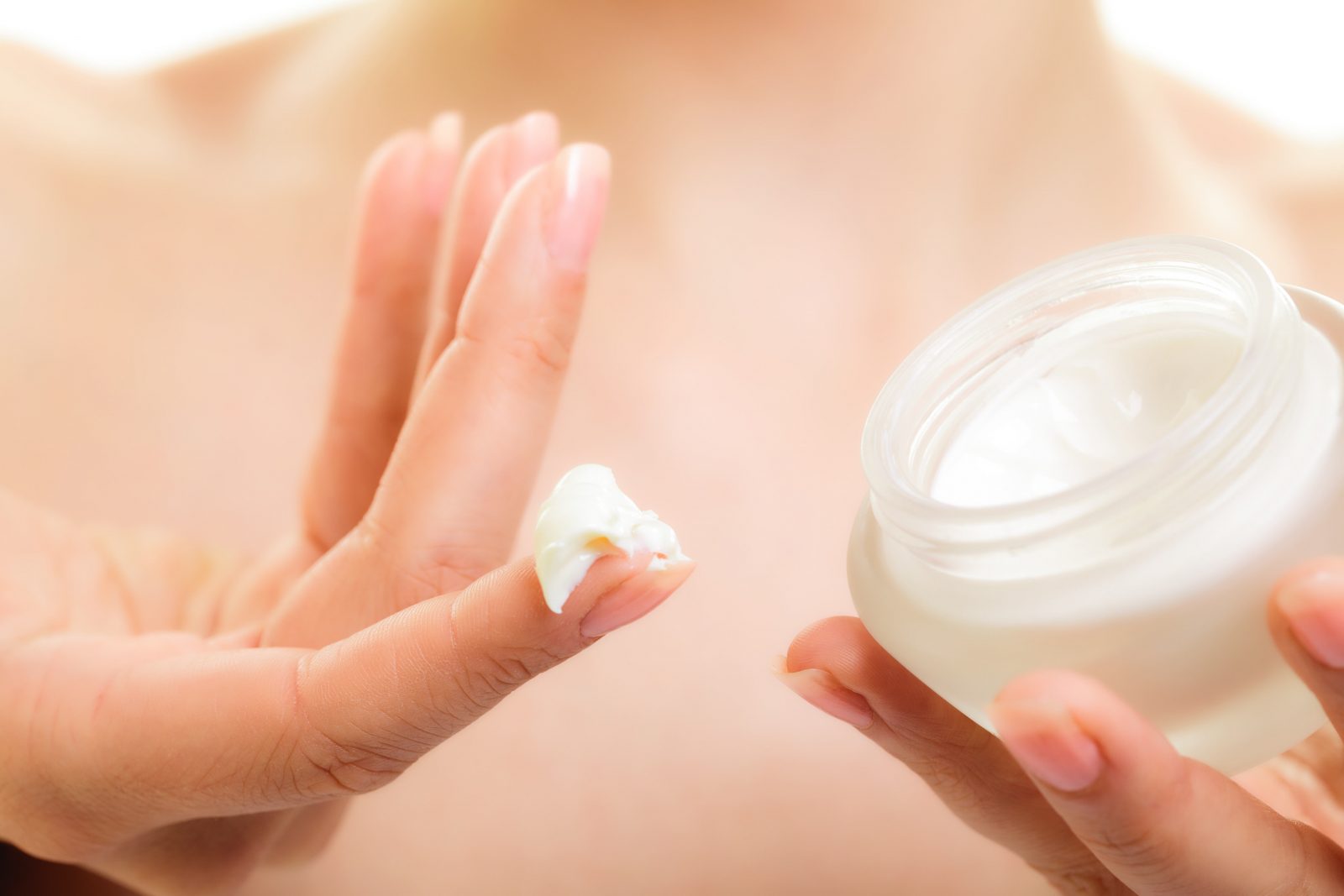
Moisturizing, Hydrating Creams and Gels
Cream Masks
Thicker cream masks can be great for particularly dry skin that needs a healthy dose of moisturization. These lipid-based moisturizers hydrate your skin by capturing the moisture within the oil barrier and hold more beneficial compounds including essential fatty acids, Vitamin F, and phospholipids, which is why cream moisturizers are not only hydrating but also nourishing. People with dry skin can really benefit from using cream moisturizers because cream moisturizers can work on so many levels. If you have mature skin, cream moisturizers can help with fine lines and wrinkles. This mask is ideal for carrying fat-soluble vitamins like Vitamin A and Vitamin E, as well as barrier lipids, delivering them to particularly devitalized skin efficiently. This type of mask supports intensive recovery. They are left on and not rinsed off to allow for continued skin penetration. Luxurious overnight masks often fall into this category.
Gel Masks
Gel masks are usually oil-free, which makes their texture light. They can hydrate your skin without clogging your pores. With added hyaluronic acid as a water-boosting humectant, gel formulas typically include cucumber or aloe vera to soothe and calm inflamed skin, making them ideal for sensitized (not sensitive) skin. However, this is not ideal for more rosacea-prone skin, which can worsen with water-based products. Additionally, the alcohol in gel masks allows them to dry or “cure” quickly but can cause dryness and irritation if you have sensitive skin.
Exfoliating: Acids, Scrubs, and Enzymes
Alpha Hydroxy Acid Masks
Sugar acid or AHA exfoliants, like glycolic acid and lactic acid, are featured extensively in many exfoliating face masks. These mild acids work to remove dead cells built upon the surface of the face, leaving skin looking brighter and feeling smoother. The application of these acids is weaker than that of a chemical peel but gives many of the same benefits. Rosacea-prone, sensitized, sensitive, or dehydrated skin are likely to respond negatively to these acids, so one should be cautious if considering using them.
Physical Scrubbing Masks
You will also often see physical scrub masks on the store shelves, but you really have to know what the scrub is made from to understand the impact it can have on your skin. For instance, while smooth, round jojoba beads in a cream mask base are a safe and effective physical exfoliant, crushed nut shells or fruit seeds (Hello, apricot scrub. We are looking at you!) are not preferred because of their rough and jagged nature. They can do more damage to your skin than good.
Enzyme Masks
Fruit enzymes, such as those derived from pineapples and papayas, are another way to exfoliate. Typically mild and non-irritating to most skin types except the most sensitive, they also break down dead skin cells to even skin tone and brighten skin, as well as smooth rough-textured skin.
 Photo Credit: Shutterstock
Photo Credit: Shutterstock
Peel-Off and Sheet
Peel-off Alga-Based Masks
With a rubber-like texture, they’re kind of fun to remove, (You know you’ve seen the Instagrams!) These masks can be used for just about any skin concern if individual skin-suiting ingredients are contained within them. Some contain acids, such as glycolic and salicylic, that exfoliate and combat acne. Others are full of hydrating hyaluronic acid or antioxidants like green tea and grape seed extract. Overall they are safe, versatile and refreshing.
Sheet Masks
First popularized in Korea, most sheet masks contain moisturizing hyaluronic acid and ceramides, which help restore the skin’s barrier, and antioxidants, which defend against free radicals. Sheet masks tend to be deeply hydrating and inflammation-quenching, so they are particularly great for post-procedure skin, dry skin, inflamed skin, and fine lines.
Dr. Sholar's Favorites
Dermaviduals Vitamin Cream Mask
An intensive anti-aging cream skin care mask for the face and body. Crafted with Vitamins A, C & E plus D-Panthenol and essential fatty acids, the mask works to prevent vitamin deficiency symptoms of the skin. Olus Oil helps control transepidermal water loss, leaving the skin feeling soft, smooth and well-hydrated. Enjoy the powerful effects of this mask even after a measurable 72 hours.
Dermaviduals Customizable Individual Mask
This unique mask is a Kaolin clay mineral gel base that can easily be used for individual adjustments by adding active agents like extracts, liposomes, nanodispersions, mono substances and oils to be released into the skin effectively and continuously, leaving the skin smooth and plump.
AnteAGE Regenzyme Mask
This non-acid blend of powerful botanical enzymes produced through bacterial fermentation, enriched with anti-inflammatory and anti-oxidant rich ingredients, will soften skin and slough away surface dead skin cells, leaving the skin polished, hydrated. Designed to be gentle enough for all skin types, it is the perfect companion to all your professional facials and treatments.
Franz Microcurrent Facial Dual Sheet Mask
This unique 2-layered mask is “eco-powered” to create tiny waves across your skin so that ingredients go deep (6 x deeper!) and are clinically proven to tighten, tone, and even out skin tone. For optimal results, mask twice a week for two weeks then for long-term maintenance continue just once a week.
Pro tip: apply this mask before an event or in the morning for a quick glow-up! It is also ideal to use immediately post-radiofrequency microneedling treatments.






